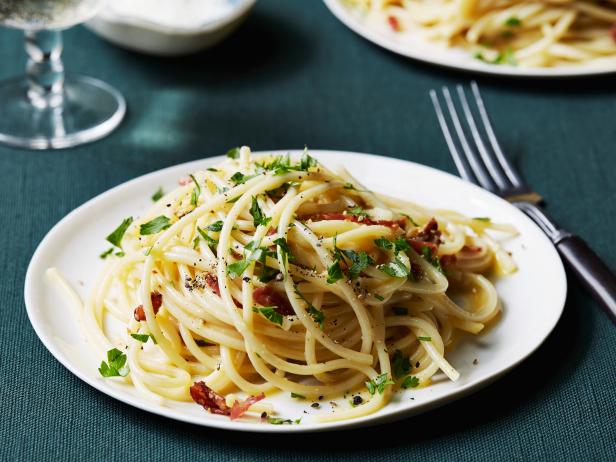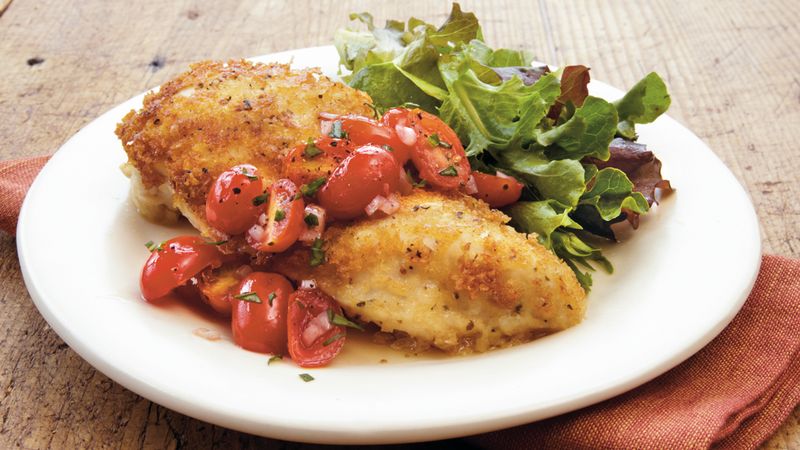Interview Project: Noodles on the Silk Road
For my interview project, I chose to interview a 20-year-old female named Mercedes Benites. Mercedes was born in Milan, Italy and lived there for six years. Then, she spent six years with her family in Argentina. At the age of thirteen, she and her family then moved back to Milan. When she turned eighteen, she moved to the Unites States. She spent one year in Iowa and then moved to Georgia where she now resides. Mercedes graduated from Georgia Southwestern State University in 2018 with a bachelor’s degree in political science. She is now serving as an intern in the Governor’s Office of Constituent Services for the state of Georgia. My goal for the project was to analyze the influences of Mercedes’s diverse background on her relationship with food, explore possible culinary fusions and create a dialogue on the immigrant experience for young generations.
Mercedes’ family has ancestors from Italy, Spain and Swiss roots, but she credits most of her upbringing with the Italian and Argentine influences. In Argentina, Mercedes discussed that there is a large presence of European culture with approximately 50 percent Italian, 40 percent Spanish and 10 percent German nationals colonizing the country. Due to the epidemics and colonization wars which killed nearly all the native people, she described the country consisting of very small, close communities with a diverse background. Therefore, her adjustment to American food has not come easy. Like many other Italians, she laments that it is often hard for her to eat food every weekend in the United States. Often appalled by the notion of Italian food in America, Mercedes and other Italians avoid the so-called “Italian-style” chain restaurants such as Olive Garden, for example.
One of Mercedes’s favorite foods is pizza. Yet, there is a very large difference among pizza in Argentina, Italy and America. She cites the quality of the products and the method of cooking as the primary concerns that prevent her indulgence. When it comes to cheese, the fresher the better and less it more. She described her favorite pizza as thin-crust, being cooked on a hot stone in a few minutes, high-quality mozzarella cheese and juicy, but sparse, tomatoes. Much to her chagrin, she hasn’t found a place yet to eat pizza in Atlanta. When she travels to Miami, she gets a taste of home from a pizza shop. Because they import the fresh cheese, produce and even the soil, which she claims is a much higher quality, she always returns in that city.
Though she doesn’t often cook, she learned to make her second favorite food and all-time favorite pasta dish from her mother. Her mother often makes pasta alla carbonara which is a traditional dish made with cubed bacon or pancetta, raw eggs and spaghetti noodles. She raves about the dish and often misses her mother’s cooking. While she has made homemade pasta before, she is particularly interested in the sauce that covers her bowl of noodles. Compared to America, where Walmart runs rampant and pre-made sauces dominate the shelves, Mercedes enjoys the organic aspects of creating the sauces and toppings. It is much more methodical and thoughtful, quality over quantity.

When reminiscing on her childhood, Mercedes pointed out the Italian tradition of eating. For the Benites family, every lunch and dinner are eaten with the whole family. These meals include porcelain plates, crystal glasses and cloth napkins. It is more formal family time, and the meal is spread over a much longer time. She laughed saying that the family eats several plates of food and multiple courses including tea and coffee or cake. With her family, she enjoys talking about life, laughing and being present in the moment. Compared to the United States, she joked people would go crazy if Americans had to do that every single day. While most of her meals include just her immediate family with two siblings and her parents, every Sunday in Italy the extended family gathers together to share a meal.
Of the members of the family, her grandmother was the most influential with cooking. But being from Argentina, her family also cooked a significant amount of meat. About three times a week, they would make a traditional Argentine dish, asado,made of beef with cooked a charcoal grill. Compared to the American beef, it has a different taste and texture without heavy sauces like barbeque, only a few simple seasonings.

As previously mentioned, the Argentinean culture often overlaps with the traditions of the Italian people in language, traditions and food. Yet, when asked about fusion recipes, she had trouble coming up with a specific example. Because Italian food overlaps so heavily with Argentinean colonization and history, and dishes “aren’t that complicated” according to Mercedes, the fusion mainly comes from the toppings or sauces. With pasta, a fusion dish may come from a nice cooked chicken with a homemade sauce with little flavor, so the taste of the chicken is still there. She joked that there is no comparison to American chicken nuggets and honey mustard, while she enjoys them on occasion, they are nothing compared to homemade dishes of home. While she tries to keep her diet balanced with vegetables, lots of protein and fresh meat, homemade sauces that are simple; it can be hard with lack of quality, fresh ingredients in food.
Having just graduated from college, Mercedes is at a very important crossroads of her upcoming life. Moving to Atlanta after graduation, she admits she started liking American food. She doesn’t cook a lot at home, but when she does she cooks meat. One go-to recipe is chicken Milanese, a dish of chicken breast covered in eggs and breadcrumbs that is fried. She also admits that she cooks a lot of pasta, but the store-bought kind, not homemade. It is too easy, cheap and quick to make itself. She doesn’t often see raviolis like she eats at home, but she misses it.

When I asked about a comfort dish that reminds her of home, her response was surprising. Instead of making something at home, she will go to a nice restaurant and order a large steak. Another big difference from her Italian background in America is the taste of coffee. For Italians coffee is part of a daily meal, it’s essential, not just a side beverage. Mercedes claims that American coffee is watered down and not as rich as brands such as Illy, the equivalent to American Starbucks. When talking to other locals in Italy, they often tell her that they don’t enjoy staying in American for long-term, because they cannot find the food they enjoy in America. Especially for older generations, some Italians cannot conform to the American diet. However, for Mercedes, she expressed how much she enjoys life in America and her slow, but developing, taste for the American palate.
With the continued growth of globalization, Mercedes strongly thinks that it is becoming easier for immigrants to enjoy life in America with small restaurants and tastes of home. While she doesn’t know the cultural landscape of larger cities, Atlanta has been a place she has come to call home. Her diverse background speaks to the larger trends of acceptance towards immigrants in America for both European and South American people. With a background in political science and working in the government, Mercedes understands the challenges that can come from both institutional and social resistance, yet she is dedicated to continuing to help other immigrants assimilate while embracing and sharing their own culture.
Interview Questions
- Name, age, hometown, occupation and college?
- Where are your ancestors from?
- Can you talk about your first memory of eating Italian food, particularly pasta?
- Do you have a favorite pasta dish?
- Have you made homemade pasta before? What was your experience?
- Do you have any good memories of your childhood related to pasta?
- Do you have a really big family?
- Was cooking a family experience for you?
- Did you learn recipes from your parents?
- Are there any dishes your family has created that are a fusion of the two cultures?
- What is the main difference from Italian and Argentinean food compared to America?
- What kinds of foods are you eating now? How has the transition been since you’re cooking / living on your own?
- Do you buy pasta or make it?
- When you’re missing home, is there a dish you make that gives you comfort?
